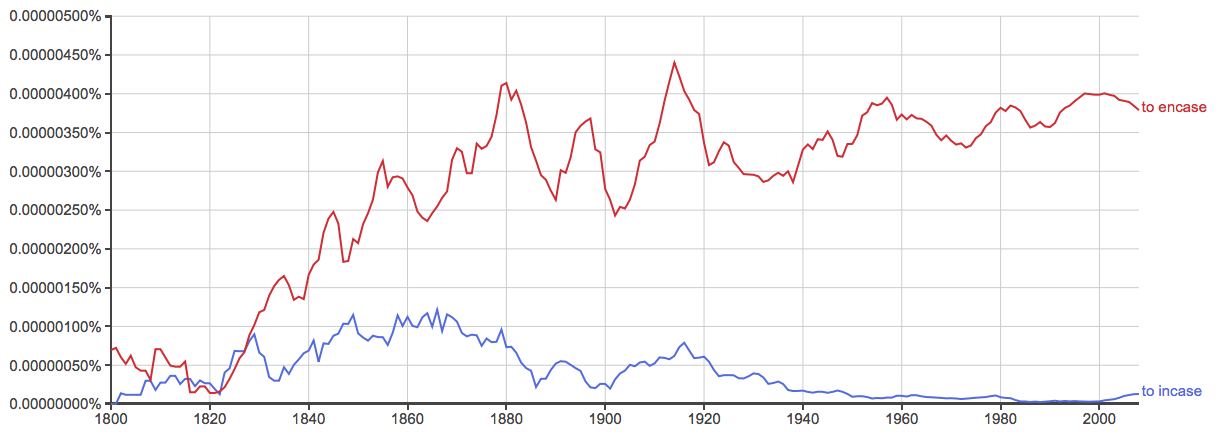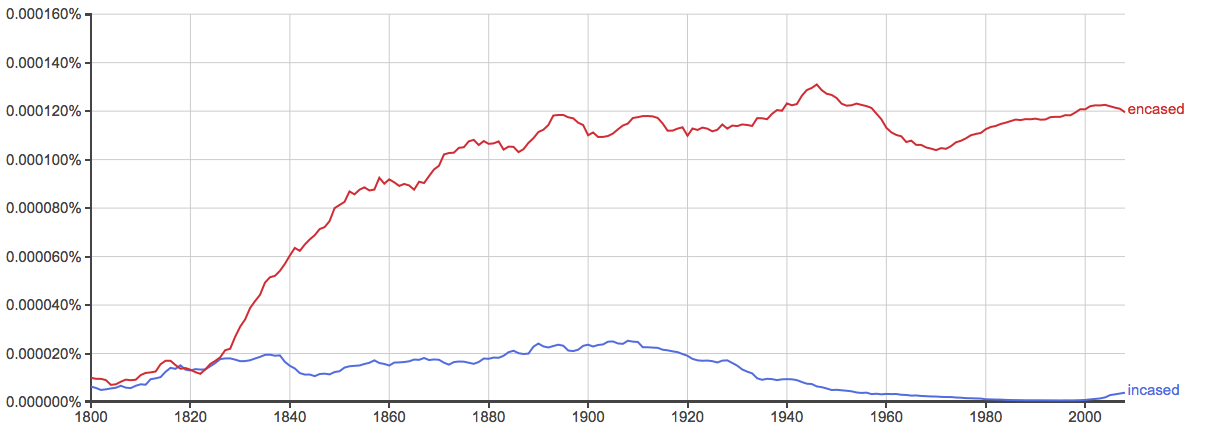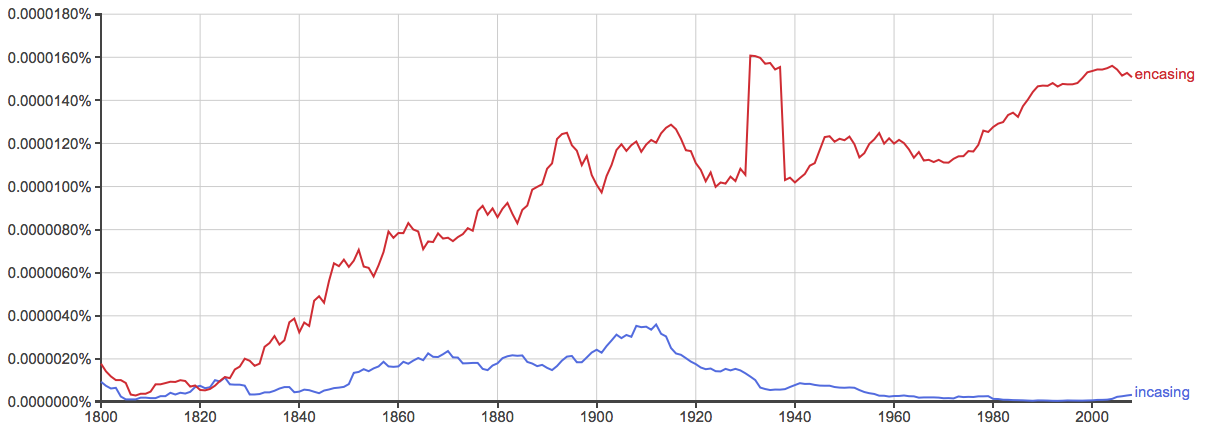Many writers aren’t sure whether to use in case or incase in phrases like just in case.
Should you use either of them at all? As it turns out, there are usually better options. Some writers also use the spellings incase and encase interchangeably, even though only one of them is the correct spelling.
Continue reading to learn more about these confusing words.
What is the Difference Between Incase and In Case?
In this article, I will compare in case vs. incase. I will outline which spelling is correct and list a few examples to show the proper context.
I will also showcase a useful mnemonic device that will help you decide whether in case or incase is better for your writing.
When to Use In Case
 What does in case mean? In case is a phrase that means if something happens or if something is true.
What does in case mean? In case is a phrase that means if something happens or if something is true.
A common way for it to be formulated is just in case, which is an expression of preparation for expected conditions.
Here are a few examples,
- Pack some pepper spray, just in case you run into bears in your travels.
- In case you didn’t know, Atherton thinks your proposal will cost us too much money.
- Officials could hold a suspect’s device until they got a warrant to search it, and there would be an exception to the rules in case of emergency. –The Washington Post
In his book Garner’s Modern American Usage, Bryan Garner suggests that in case is usually better replaced with the conjunction if or the adverb when.
The second example above could easily be changed in this way.
- In case you didn’t know, Atherton thinks your proposal will cost us too much money.
- If you didn’t know, Atherton thinks your proposal will cost us too much money.
As you can see, the meaning is the same, but the words are used more economically. Brevity is a virtue in formal writing, so Garner’s suggestion is a good one.
When to Use Incase
 What does incase mean? Incase is a misspelling of encase, which is a verb that means to enclose something within something else.
What does incase mean? Incase is a misspelling of encase, which is a verb that means to enclose something within something else.
You should always use encase over the spelling incase.
For example,
- When Bramford pulled his ham from the oven, it was encased in a charred husk of blackened skin.
- Encased in its hard chrysalis, the larva underwent metamorphosis to become an adult butterfly.
- It doesn’t help that FedEx Corp. and United Parcel Service Inc. have introduced new shipping rates that charge extra for bulky packages, making it more costly to encase a small amount of chocolate in a foam cooler stuffed with liquid ice packs. –The Wall Street Journal
Here are a few graphs that chart incase vs. encase in English writing since 1800. As you can see, encase is the clearly the preferred spelling.



In the first and second person present tense, the verb remains encase in both the singular and plural forms. In the third person singular present tense, it becomes encases.
- First person present: I encase.
- Second person present: You encase.
- Third person present: He encases.
Lastly, encase becomes encased in the past tense, encasing as a present participle.
Note: Incase is the proper name of a company that manufactures laptop cases. Obviously, when referring to this company, you would used the spelling incase.
Trick to Remember the Difference
Incase is a misspelling of the verb encase. As a result, you should always use encase as a verb.
The phrase in case, when used to mean if something happens, should remain two words. Even better yet, you should shorten it to if or when whenever possible.
Both in case and if begin with the letter I. You can use that letter to remind yourself that if you are using in case to mean if, you might as well just use if.
Summary
Is it incase or in case? Incase is a misspelling of encase. In case is a phrase often used to mean if or when.
You should obviously avoid the spelling error incase, but there are also many better word choices than in case.
Contents
